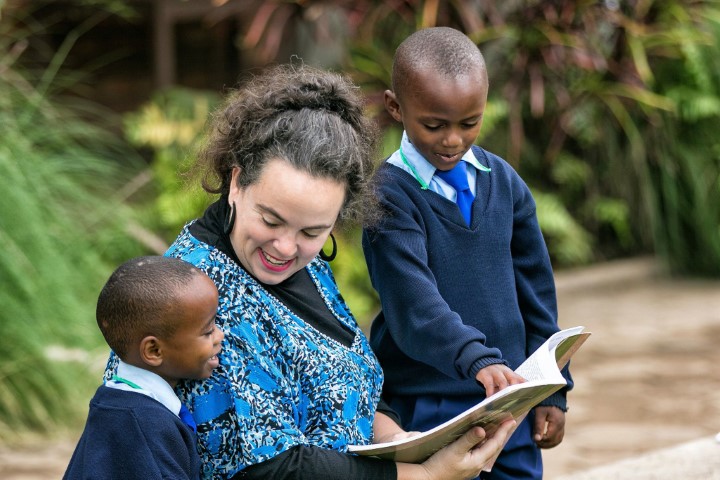
Stacking the odds in favour of female education
The School of St Jude, in the northern Arusha region of Tanzania, has been fighting poverty through education for over 17 years – and Rotary has been helping school founder, Gemma Sisia, since its very first fundraiser.
It was the Rotary Club of Armidale Central, NSW, that helped build St Jude’s very first classrooms in 2000, while Rotary Australia World Community Service (RAWCS) helped facilitate tax deductibility status two years later.
Having grown to 1800 students, with more than 550 graduates, Rotary has continued to play an important role at St Jude’s. There are established Earlyact and Interact clubs at the school and dedicated Rotarians who continue to support the students.
Now, in 2019, this pioneering leader in charitable education is about to get even bigger as it prepares to enter an exciting new era, with the registration for opening a new girls’ secondary school recently approved.
In Tanzania, there are around 4500 secondary schools, a huge drop from the almost 17,000 primary schools. It’s no surprise then that only 4 per cent of students make it into higher education.
The motivation behind this new venture is to give even more bright, poor young Tanzanians the opportunity to receive high-quality education and continue to be supported into university.
This means there will be more graduates and more future leaders leaving St Jude’s each year, ready to create change in their communities and country.
As a girls’ secondary school, St Jude’s will also be stacking the odds in favour of females, in a country where girls from a poor rural background will only receive 3.7 years of schooling on average.
“Currently, when we enrol at the beginning of secondary school (Form 1), at least 60 per cent of students are boys; when we enrol at high school (Form 5) it’s more than 80 per cent. As you go up the levels, there’s less and less girls staying in school. By reconfiguring our current campuses, we can almost double our graduating classes. We’re making a bigger impact on more students and we’re so excited,” Gemma beamed.
The research is clear; providing girls with an education helps break the cycle of poverty. Educated women are less likely to marry early and against their will, less likely to die in childbirth, more likely to have healthy babies and send them to school, and more likely to have increased earning power.
More graduates from St Jude’s will also mean more interns in the post-school Beyond St Jude’s program. The young leaders are supported in giving back to their community, working as interns in placements across St Jude’s and in government schools as part of a Community Service Year.
Since its inception in 2015, St Jude’s interns have taught core subjects to over 40,000 students in under-resourced and under-staffed government schools.
And this year, 23 alumni from the Class of 2015 (the first to graduate from St Jude’s), will make history by becoming the first Beyond St Jude’s scholars to graduate from university.
Among them, 25-year-old trailblazer Anna is forging a new path for Tanzanian woman, her degree enabling her to enter the accounting industry.
“I have friends that I went to government school with and some of them live on the street with no secondary education and they are struggling. Many of them wished to continue school but couldn’t, because they didn’t have anyone to support them. I never thought I would be graduating university, but I wished for it so much. St Jude’s has helped my dream come true,” Anna said.
You can help more St Jude’s students’ dreams become a reality during this landmark period. Visit www.schoolofstjude.org to find out how.
Source: Rotary Down Under on Facebook